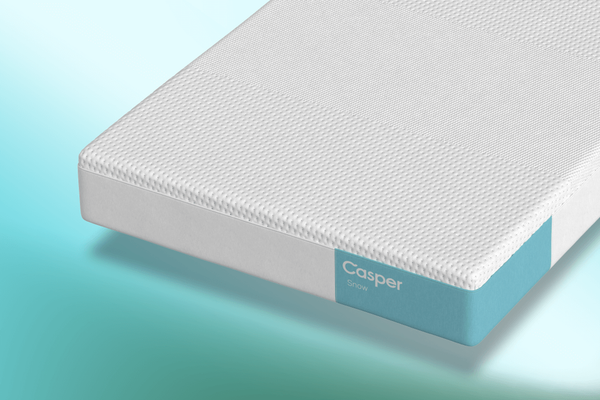
Overview
Sleep is crucial for productivity, impacting cognitive function, creativity, mood, and health. Lack of quality sleep can lead to decreased efficiency and increased fatigue. To boost productivity, establish a consistent sleep schedule, create a relaxing bedtime routine, optimize your sleep environment, limit screen time before bed, and watch your diet. Prioritizing sleep can greatly enhance work performance and overall well-being.
Frequently Asked Questions
1. Why is sleep important for productivity?
2. What are the main stages of sleep?
3. How does sleep deprivation affect creativity?
4. What strategies can help improve sleep quality?
5. How do companies support employee sleep and productivity?
In today’s fast-paced world, sleep often takes a back seat as we juggle work, personal commitments, and everyday life tasks. However, the connection between sleep and productivity is undeniable. Lack of quality sleep doesn’t just make you feel tired; it can also reduce your efficiency, creativity, and overall effectiveness. In this blog post, we’ll explore the critical relationship between sleep and productivity and share strategies to optimize your rest for maximum output.
Understanding Sleep: More Than Just Rest
Before we delve into the productivity aspects, let’s clarify what sleep actually is. Sleep is a vital physiological process where our bodies undergo various stages of rest and rejuvenation. It’s split into two primary categories: REM (Rapid Eye Movement) sleep and non-REM sleep. Both stages work together to restore energy, improve cognitive function, and regulate emotions.
The Stages of Sleep
- Non-REM Sleep: During this stage, the body repairs and rebuilds tissues, strengthens the immune system, and consolidates memories. This stage consists of three phases, deepening the state of relaxation.
- REM Sleep: This stage is crucial for brain function and emotional regulation. Dreams typically occur during REM sleep, and it's essential for learning and memory retention.
Understanding these stages helps underscore why adequate sleep is essential not only for physical well-being but also for mental performance.
The Effects of Sleep Deprivation on Productivity
When sleep is deprived, even the most motivated individuals can experience a decline in productivity. Here are some key ways that insufficient sleep can adversely impact your work performance:
1. Cognitive Impairment
Sleep deprivation impairs cognitive functions such as attention, problem-solving abilities, and decision-making skills. A study published in the journal Sleeplessness and its Effects on Cognitive Functioning suggested that people who sleep less than seven hours a night may struggle with concentration and completing tasks efficiently.
2. Decreased Creativity
Creativity flourishes during sleep cycles that encourage dreaming, particularly REM sleep. Lack of quality sleep can hinder innovative thinking, reducing your ability to develop new ideas and solutions. If you’re in a creative field, making sleep a priority is critical.
3. Mood Disruption
Under-sleeping can lead to emotional instability, heightened stress, and irritability. A negative mood can significantly affect workplace interactions and overall productivity. When we’re grumpy, our interpersonal effectiveness drops, which can lead to conflicts and decreased collaborative efforts.
4. Physical Fatigue
Fatigue caused by insufficient sleep can manifest as physical lethargy, resulting in decreased motivation to perform tasks. Achieving daily goals can feel like a Herculean effort when you’re tired.
5. Health Consequences
Long-term sleep deprivation can lead to serious health consequences, including obesity, heart disease, and diabetes, further complicating productivity issues. Poor health often translates into absenteeism and decreased work morale.
The Science of Sleep and Productivity
So how exactly does sleep impact our productivity? Several studies illuminate this connection. According to research from The National Sleep Foundation, individuals who sleep at least seven to eight hours nightly report being more productive compared to those who frequently experience sleep deprivation. Just within a single night of good rest, people show improved performance in cognitive tasks and decision-making.
Circadian Rhythm and Work Efficiency
Our bodies are regulated by circadian rhythms—the natural biological clock that signals sleep and wakefulness. When we align our schedules with our circadian rhythms, we can greatly enhance productivity. This alignment means sleeping and waking hours sync with genetic predispositions for optimal mental and physical performance.
Sleep and Workplace Safety
Not only does sleep impact productivity, but it also turns out to affect workplace safety. According to the Centers for Disease Control and Prevention (CDC), sleep deprivation is a leading factor in workplace accidents. Ensuring employees have the opportunity for adequate rest can greatly reduce the risk of accidents and improve overall workplace morale.
Strategies to Improve Sleep Quality
If you’re eager to boost your productivity through improved sleep, consider implementing the following strategies:
1. Establish a Consistent Sleep Schedule
Going to bed and waking up at the same time every day helps regulate your body’s internal clock. Consistency is key to achieving restorative sleep.
2. Create a Relaxing Bedtime Routine
Engage in calming activities before bed, such as reading, meditation, or gentle stretching. This signals your body that it’s time to wind down and prepare for sleep.
3. Optimize Your Sleep Environment
Ensure your bedroom is conducive to sleep. This includes keeping the room cool, dark, and quiet. Invest in blackout curtains, white noise machines, or other sleep-enhancing tools to create a peaceful atmosphere.
4. Limit Screen Time Before Bed
The blue light emitted by screens can interfere with your ability to fall asleep. Aim to eliminate electronic devices at least an hour before bedtime to allow your mind to relax.
5. Watch Your Diet
Be mindful of consumption before bed. Caffeine and heavy meals can disrupt the sleep cycle. Instead, enjoy a light snack if you’re hungry.
Case Studies: Sleep’s Impact on Work Performance
Real-world examples demonstrate how prioritizing sleep positively influences productivity. In various professional environments, strategies to enhance sleep quality have led to remarkable results. Businesses offering nap rooms or flexible hours for better work-life balance have reported increased productivity levels and employee satisfaction.
Pioneer Companies and Sleep Initiatives
- Google: The tech giant acknowledges the importance of sleep, encouraging creative thinking and innovation through rest. Their relaxation spaces aim to improve overall employee performance.
- NASA: Research conducted by NASA indicated the positive effects of short naps on flight performance. Astronauts often have scheduled rest to maintain optimal coordination and decision-making.
These examples exemplify how companies can foster an environment where employees can thrive through better sleep and rest practices.
The Bottom Line: Elevate Your Sleep for Supreme Success
As we’ve explored, the connection between sleep and productivity is backed by science and compelling case studies. Investing in your sleep not only enhances your productivity but also improves your quality of life. Adopting healthy sleep habits can lead to higher performance levels, better cognitive function, and enhanced emotional well-being. Don’t underestimate the power of a good night’s sleep; it might be the secret ingredient you need to unlock your true potential!








